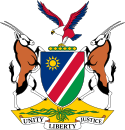
The German Democratic Party was a liberal political party in the Weimar Republic, considered centrist or centre-left. Along with the right-liberal German People's Party, it represented political liberalism in Germany between 1918 and 1933. It was formed in 1918 from the Progressive People's Party and the liberal wing of the National Liberal Party, both of which had been active in the German Empire.

The Homeland, previously known as the National Democratic Party of Germany, is a far-right Neo-Nazi and ultranationalist political party in Germany.
The German State Party was a short-lived German political party of the Weimar Republic. The party was formed on 28 July 1930 by the merger of the German Democratic Party with the People's National Reich Association.
This article aims to give a historical outline of liberalism in Germany. The liberal parties dealt with in the timeline below are, largely, those which received sufficient support at one time or another to have been represented in parliament. Not all parties so included, however, necessarily labeled themselves "liberal". The sign ⇒ denotes another party in that scheme.

The Sudeten German Party was created by Konrad Henlein under the name Sudetendeutsche Heimatfront on 1 October 1933, some months after the First Czechoslovak Republic had outlawed the German National Socialist Workers' Party. In April 1935, the party was renamed Sudetendeutsche Partei following a mandatory demand of the Czechoslovak government. The name was officially changed to Sudeten German and Carpathian German Party in November 1935.
This article gives an overview of liberalism in Austria. It is limited to liberal parties with substantial support, mainly proved by having had representation in parliament. For inclusion in this scheme it is not necessary that parties labeled themselves as a liberal party.

The Deutsche Reichspartei (DRP), also known as the German Empire Party or German Imperial Party, was a nationalist, far-right, and later neo-Nazi political party in West Germany. It was founded in 1950 from the German Right Party, which had been set up in Lower Saxony in 1946 and had five members in the first Bundestag, and from which it took the name. Its biggest success and only major breakthrough came in the 1959 Rhineland-Palatinate regional election, when it sent a deputy to the assembly.

Die Partei für Arbeit, Rechtsstaat, Tierschutz, Elitenförderung und basisdemokratische Initiative, or Die PARTEI, is a German political party. It was founded in 2004 by the editors of the German satirical magazine Titanic. It is led by Martin Sonneborn. In the 2014 European Parliament election, the party won a seat, marking the first time that a satirical party has won a seat to the European Parliament. With the 2019 European Parliament election, the party gained a second seat, held by Nico Semsrott.
The German Right Party was a far-right political party that emerged in the British zone of Allied-occupied Germany after the Second World War.

Reinhold Wulle was a German Völkisch politician and journalist active during the Weimar Republic.
The Reich Party for Civil Rights and Deflation, also known as the People's Justice Party, was a political party active in the Weimar Republic in Germany.
The Old Social Democratic Party of Germany, known as the Old Social Democratic Party of Saxony until 1927, was a political party in Germany. The party was a splinter group of the Social Democratic Party of Germany (SPD) in Saxony, and had nationalistic tendencies. Whilst the party failed to become a mass party, it played a significant role in state politics in Saxony during the latter half of the 1920s. A leader of the party, Max Heldt, served as Minister-President of Saxony 1926-1929. Wilhelm Buck was the chairman of the party.

The National Party of South West Africa was a political party in South West Africa.

The German Party was a national-conservative political party in West Germany active during the post-war years. The party's ideology appealed to sentiments of German nationalism and nostalgia for the German Empire.
The German Party was a minor conservative party active in Germany between 1961 and 1980.

Jungdeutsche Partei in Polen (JDP), or the Young German Party in Poland, was a Nazi German extreme right-wing political party founded in 1931 by members of the ethnic German minority residing in the Second Polish Republic.

The Economic League was a German political party in South West Africa.

The III. Path or The Third Path is a far-right and neo-Nazi political party in Germany.

The Right – Party for Referendum, Sovereignty and Homeland Protection is a far-right political party in Germany.











